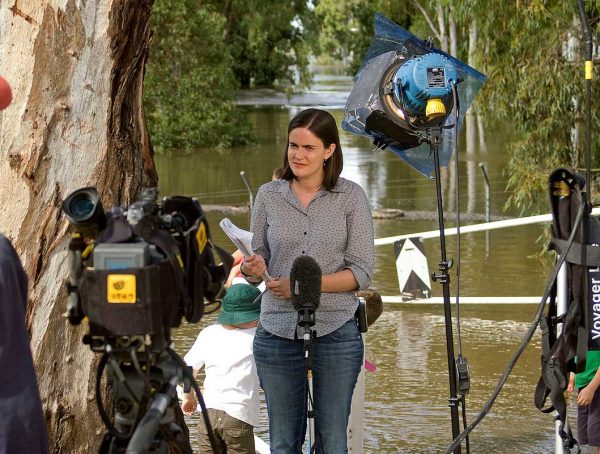 All of us have “bad voice” days when we don’t sound as good as we’d like. I’m having one of those days today, in fact, thanks to a rotten cold. But most days, my voice performs pretty well. The same can’t be said for a lot of younger broadcast journalists, apparently.
All of us have “bad voice” days when we don’t sound as good as we’d like. I’m having one of those days today, in fact, thanks to a rotten cold. But most days, my voice performs pretty well. The same can’t be said for a lot of younger broadcast journalists, apparently.
Voice coach Ann Utterback says she keeps running into a relatively new speech problem called “vocal fry,” especially among young women.
It’s been compared to “Valley Girl lift” in that it tends to happen at the ends of sentences. Instead of the rising tone that made all those would-be Valley Girls turn every sentence into a question, vocal fry adds a raspy, gravelly quality. It sounds a little like bacon frying. And just like Valley speak, it’s not innate, it’s learned.
At the end of sentences it usually indicates that breath supply is low, and the pitch is near the bottom of the pitch range. Some speakers have glottal fry elements throughout their speech. Normally, however, a glottal fry will begin a few words before the end of a sentence. The pervasiveness of glottal fry with young women may be an adapted style that helps them fit in and connects them to stars that are using this style of speech.
Don’t think you’ve ever heard it? Don’t be so sure. This NBC story is full of examples of pop stars with glottal fry and college students who sound just like them.
What’s the solution? Utterback says better breath support and a slight increase in pitch will usually take care of glottal fry.









1 Comment
Hi Deborah-
Thanks for sharing my post on vocal fry. The more we can expose this vocal trait and the problems it creates, the sooner women will get the message and, hopefully, make a change.
Take good care of your voice today and let it heal.
Ann